Fascinating new evidence at Cuckmere Haven!
Posted: 23 May 2011 22:35
A couple of visits to Cuckmere Haven have located the sites of two demolished pillboxes. Some graffiti dating to 1940 was also discovered.
Pillbox parch mark
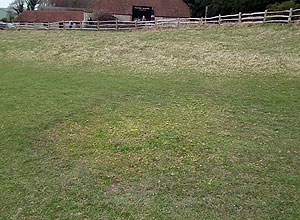
The first pillbox is right by the A259 entrance to the Haven. This was a Type 24 Pillbox seen on some postwar photos I've seen at the National Archives; the Germans also marked it on their Befestigungskarten along with a roadbock nearby.
I've been keeping an eye on this site for some time, hoping that the light smudge just about visible on Google Earth marked the site of the pillbox.
The photo at right shows the area a few weeks ago; I was hoping to see a parch mark, but a slightly lighter shade of green grass was all I could vaguely see.
Returning today, I was astounded to see a parch mark of breath-taking clarity, brought out by the recent hot, dry weather.
I've superimposed a Type 24 pillbox on the photo below to show how it would have been aligned in the landscape - move your mouse over it to see the parch mark itself.
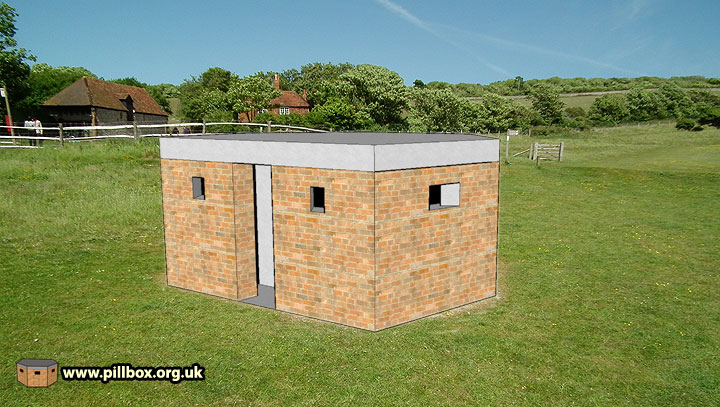
Once I got down on my knees and started measuring (much to the fascination of passers-by) I realised that the parch mark was greatly enhanced by the fact that the foundation slab was still present and showing through the turf in places.
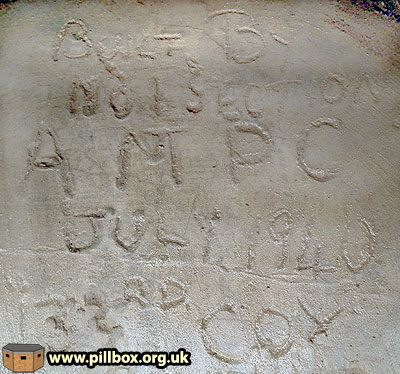
Some new graffiti
The next piece of evidence was equally astounding, in the form of graffiti seen at right. It reads:
BUILT BY
NO.1 SECTION
AMPC
JULY 1940
133rd COY
This denotes the work of No.1 Section of 133 Company, Auxiliary Military Pioneer Corps.
Other graffiti at Cuckmere Haven shows that 133 Company's No.3 Section also liked to make their mark in wet cement; artefacts such as a themos flask cup and a bottle stopper are also visible in anti-tank cubes.
We know from the War Diary that No.1 Section had moved with No.2 Section to Pevensey on August 9th, with Nos. 6 and 7 also moving out by the end of the month.
This left Nos. 3, 4, 5, 8, 9 and 10 Sections still at Cuckmere. All sections (except No.7) were back in the valley by December 1940 and in January, the entire company was again at Cuckmere before being transferred elsewhere.
It would be fantastic to find evidence of the other 133 Coy sections in the concrete!
Another Type 24 Pillbox
The final discovery was another pillbox base that I happened to stumble across completely by chance.
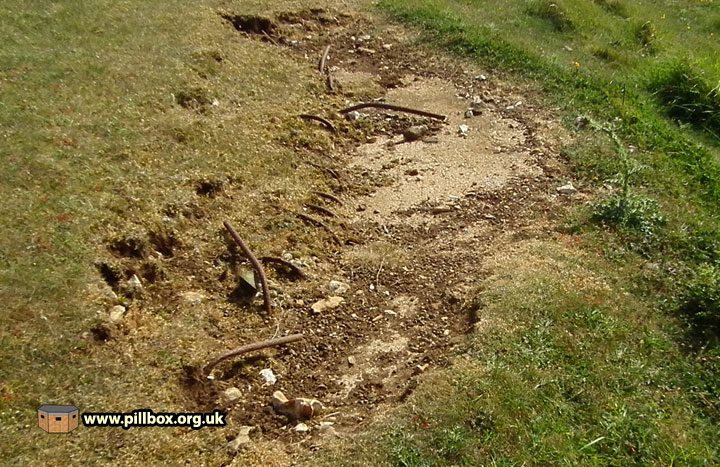
This was a demolished Type 24 base, with reinforcing rods in abundance; a few hundred yards away I came across what appears to have been the rest of the pillbox. Why the rubble was dumped here and not removed completely is not known.
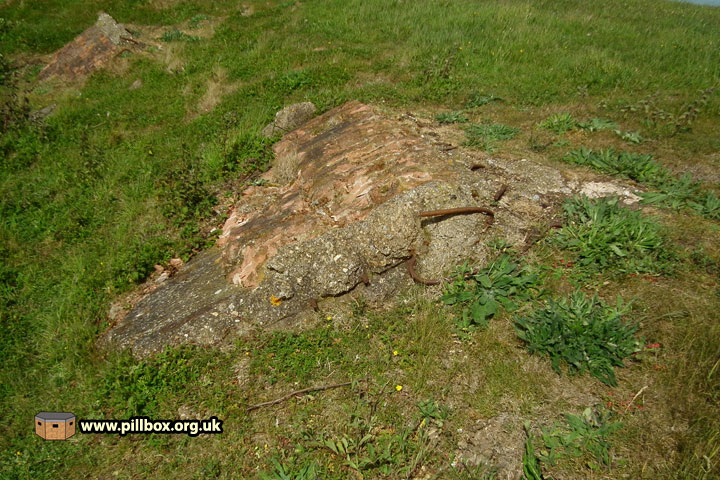
Cuckmere Haven never ceases to amaze me; I've been here countless times over the years and I'm still finding new evidence in the landscape!
- Pete

Email:
Blog Latest
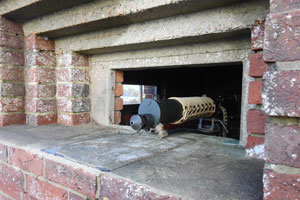
Bishopstone reveals its pillbox secrets
18 October 2021
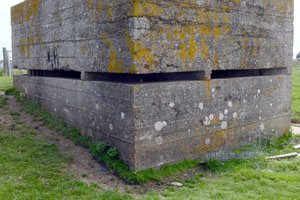
Pillbox or Observation Post?
10 June 2020
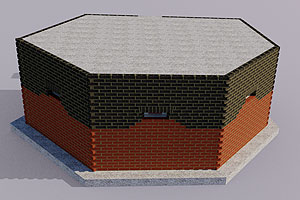
Uncovering the hidden secrets of a pillbox
8 June 2019
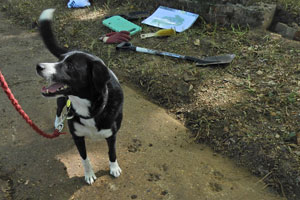
Review of 2018
31 December 2018
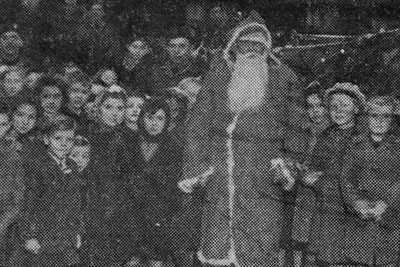
Wartime Christmas in East Sussex (2)
24 December 2018
Jargon-buster
Befestigungskarte
Fortifications map compiled by German Intelligence from aerial photographs during 1940-41 in preparation for Operation Sealion. Defence works were plotted using a system of red symbols.
Cubes
Anti-tanks blocks, popularly known as dragon's teeth. Not to be confused with smaller blocks known as pimples, cubes can be upwards of 1m square. Many examples in Sussex have apexes or chamfered edges, leading to them being incorrectly recorded as coffins.
Pillbox
Generic term for a hardened field defensive structure usually constructed from concrete and/or masonry. Pillboxes were built in numerous types and variants depending on location and role.

Type 24 pillbox
A six-sided (but not a regular hexagon) pillbox. The Type 24 is the most frequently seen pillbox in East Sussex, mostly along stop lines. It can be found in thin wall (30cm) or thick wall (1m) variants.
War diary
A record of events kept by all units from the point of mobilisation. A diary's contents vary enormously from unit to unit; some give detailed entries by the hour on a daily basis while others merely summarise events on a weekly/monthly basis.
This site is copyright © Peter Hibbs 2006 - 2024. All rights reserved.
Hibbs, Peter Fascinating new evidence at Cuckmere Haven! (2024) Available at: http://pillbox.org.uk/blog/216683/ Accessed: 27 July 2024
The information on this website is intended solely to describe the ongoing research activity of The Defence of East Sussex Project; it is not comprehensive or properly presented. It is therefore NOT suitable as a basis for producing derivative works or surveys!